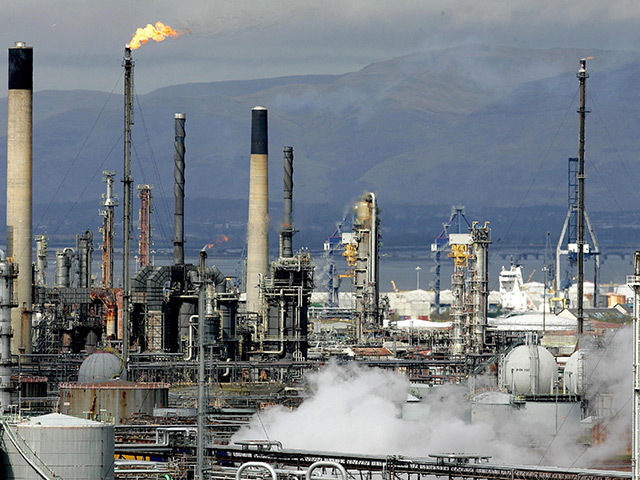
Petrochemical giant INEOS has branded the blanket ban on fracking in Scotland as “bizarre”.
And the firm, which imports US shale gas to Grangemouth in the central belt, has also accused the Scottish Government of turning its back on a multi-billion pound economic windfall.
MSPs voted to endorse the Scottish fracking ban yesterday following a parliamentary debate.
The move solidifies the SNP’s stance against fracking, which has been heavily criticised by the Conservatives as lacking evidence led scientific backing.
Last night a spokesman for INEOS said: “Today’s debate at Holyrood underlines the Scottish Government’s intent to turn its back on the manufacturing and jobs renaissance offered by the onshore gas sector.
“With an effective blanket ban now in place by refusing to allow planning applications to go through, Scotland will miss out on numerous economic and employment benefits, benefits that will move to the rest of the UK.
“Recent figures on jobs and investment estimate that the shale industry is expected to bring in £33billion in the next two decades into England alone.
“With reports commissioned by the Scottish Government judging shale production safe, today’s endorsement is a continuation of a bizarre decision made in the face of opposing scientific evidence.”
INEOS said shale oil and gas had the potential to benefit local communities by up to £1billion across the UK and contribute to Scotland gaining “energy independence”.
However environmental group Friends of the Earth welcomed the move.
Head of campaigns in Scotland, Mary Church, said: “This is a huge victory for the anti-fracking movement, particularly for communities on the frontline who have been fighting for a ban these last six years.
“The Scottish Parliament’s vote affirms and strengthens the ban on fracking. The ban will protect Scotland’s people and the environment from this dirty industry and boost the global fight against fracking.”
The Scottish Parliament voted for the Scottish Government’s proposal to use planning and environmental regulation powers to effectively ban the fracking industry ‘indefinitely’.
Amendments proposed by the Labour Party, Greens and Liberal Democrats – all of whom are opposed to fracking – to strengthen the Government’s position were passed with the support of the SNP.
This means the ban will be written into the National Planning Framework and leaves the door open to use licensing powers, devolved last year, when they finally come into force, to put the ban into law.
Recommended for you
